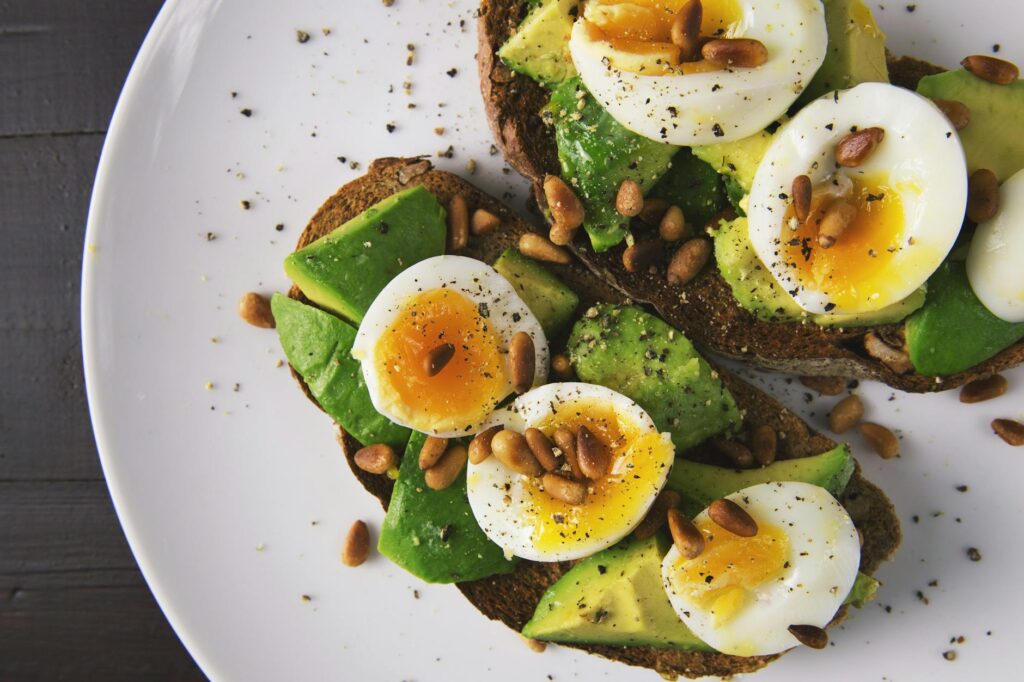We all crave that feeling of happiness and well-being. Did you know that the food we eat plays a significant role in our mood and overall health? This post explores the delicious world of wholesome foods and how incorporating them into your diet can contribute to a happier you.
The Power of Nutrition
Your diet is the foundation of your physical and mental health. Nourishing your body with wholesome foods provides the essential nutrients needed for optimal brain function and emotional balance. 
Fruits and Vegetables: Nature’s Candy
Brightly colored fruits and vegetables are packed with vitamins, minerals, and antioxidants. Aim for a variety of colors to ensure you’re getting a wide range of nutrients. Learn more about the benefits of antioxidants.
Whole Grains: Sustained Energy
Choose whole grains over refined grains. They provide sustained energy and fiber, which aids in digestion and helps you feel fuller for longer. 
Lean Protein: Build and Repair
Lean proteins such as fish, chicken, beans, and lentils are crucial for building and repairing tissues. They also support healthy brain function. Check out this resource on choosing lean proteins.
Healthy Fats: Brain Boosters
Don’t shy away from healthy fats! Avocados, nuts, seeds, and olive oil provide essential fatty acids that are vital for brain health and mood regulation. [IMAGE_3_HERE]
Hydration is Key
Water is essential for countless bodily functions, including nutrient absorption and waste removal. Staying hydrated can significantly impact your energy levels and mood.
The Gut-Brain Connection
The gut microbiome plays a significant role in mental well-being. A diet rich in fiber and probiotics supports a healthy gut, which in turn can positively influence your mood. Discover more about the gut-brain axis.
Mindful Eating: Savor the Experience
Practice mindful eating. Pay attention to your body’s hunger and fullness cues. Slow down and enjoy each bite. [IMAGE_4_HERE]
Limit Processed Foods
Processed foods are often high in unhealthy fats, sugar, and sodium. Reducing your consumption can have a positive impact on your overall health and well-being.
Reduce Sugar Intake
Excessive sugar intake can lead to energy crashes and mood swings. Opt for natural sweeteners like fruits when possible.
The Importance of Sleep
Getting enough sleep is crucial for both physical and mental health. Aim for 7-9 hours of quality sleep each night. Read more about improving your sleep hygiene.
Regular Exercise: Boost Your Mood
Regular physical activity releases endorphins, which have mood-boosting effects. Find an activity you enjoy and make it a part of your routine.
Stress Management Techniques
Chronic stress can negatively impact your health. Incorporate stress-reducing techniques into your daily life, such as meditation, yoga, or spending time in nature. [IMAGE_5_HERE]
Listen to Your Body
Pay attention to how different foods make you feel. Everyone’s body is unique, so experiment to find what works best for you.
Social Connections
Strong social connections are essential for overall well-being. Make time for meaningful interactions with loved ones.
Supplements: When Necessary
Consult a healthcare professional before taking any supplements. They can advise on whether supplements are necessary and appropriate for you. Learn more about healthy supplementation.
Conclusion
By making mindful choices about your diet and lifestyle, you can significantly improve your overall well-being and cultivate a happier, healthier you. Remember that consistency is key; small changes over time can make a big difference. [IMAGE_6_HERE]
Frequently Asked Questions
What are some easy ways to incorporate more whole foods into my diet? Start by swapping refined grains for whole grains, adding more fruits and vegetables to your meals, and choosing lean protein sources.
How much water should I drink daily? The recommended daily water intake varies, but a good starting point is 8 glasses. Listen to your body and adjust accordingly.
Are all supplements beneficial? Not necessarily. Some supplements may interact with medications or have potential side effects. Always consult a healthcare professional before starting any new supplement regimen.
Can diet alone cure depression? No, diet alone cannot cure depression. However, a healthy diet can significantly support mental well-being and may be a helpful part of a broader treatment plan. Consult a mental health professional for appropriate treatment.
How long does it take to see improvements in mood after changing my diet? The timeframe varies depending on the individual and the extent of dietary changes. Some people notice improvements within weeks, while others may take longer.
